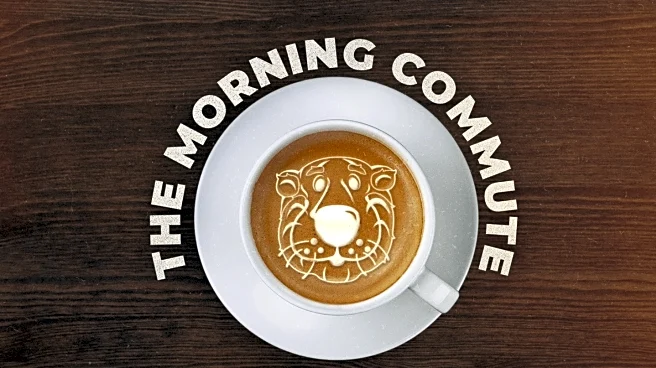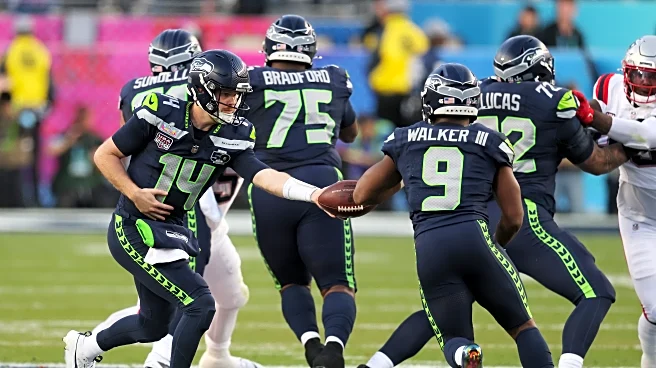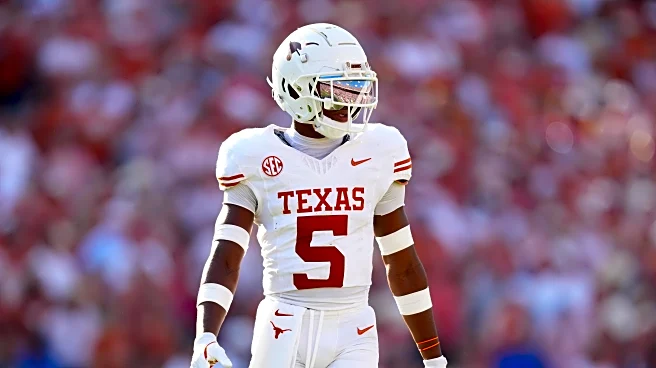What's Happening?
Cracker Barrel, a well-known American restaurant chain, has recently undergone a rebranding effort that has sparked significant backlash. The company removed the stylized likeness of Uncle Herschel from its logo, opting for a simplified design featuring just the brand name in a yellow hexagon. This change has been met with criticism from customers and political figures, including President Trump's son, Donald Trump Jr., who expressed disapproval on social media. The rebranding has also impacted Cracker Barrel's stock, which saw a decline of $7, bringing it down to $54.40. Despite the controversy, some customers and marketing experts argue that the change is not substantial and that the core offerings of the restaurant remain unchanged.
Why It's Important?
The backlash against Cracker Barrel's rebranding highlights the challenges legacy brands face when attempting to modernize their image. The reaction underscores the cultural significance of the brand's traditional aesthetic, particularly among its core customer base, which is largely located in conservative areas. The stock decline reflects investor concerns about the potential impact on customer loyalty and sales. This situation illustrates the broader tension in corporate America between maintaining traditional brand identities and adapting to contemporary market trends. The outcome of this rebranding effort could influence how other companies approach similar changes in the future.
What's Next?
Cracker Barrel may need to address the concerns of its traditional customer base to mitigate the backlash. The company could consider engaging with its audience through marketing campaigns that emphasize the unchanged aspects of its brand, such as its menu and dining experience. Additionally, monitoring the stock market response and customer feedback will be crucial in determining the long-term impact of the rebranding. As the controversy unfolds, other companies may observe Cracker Barrel's approach to managing public relations and customer satisfaction in the wake of significant brand changes.
Beyond the Headlines
The Cracker Barrel rebranding controversy also touches on broader cultural and political themes. The reaction from political figures and the public reflects ongoing cultural debates about tradition versus modernization. The use of terms like 'woke rebrand' indicates a deeper cultural divide that companies must navigate when making branding decisions. This situation may prompt discussions about the role of corporate branding in cultural identity and the potential risks of alienating key customer demographics.









